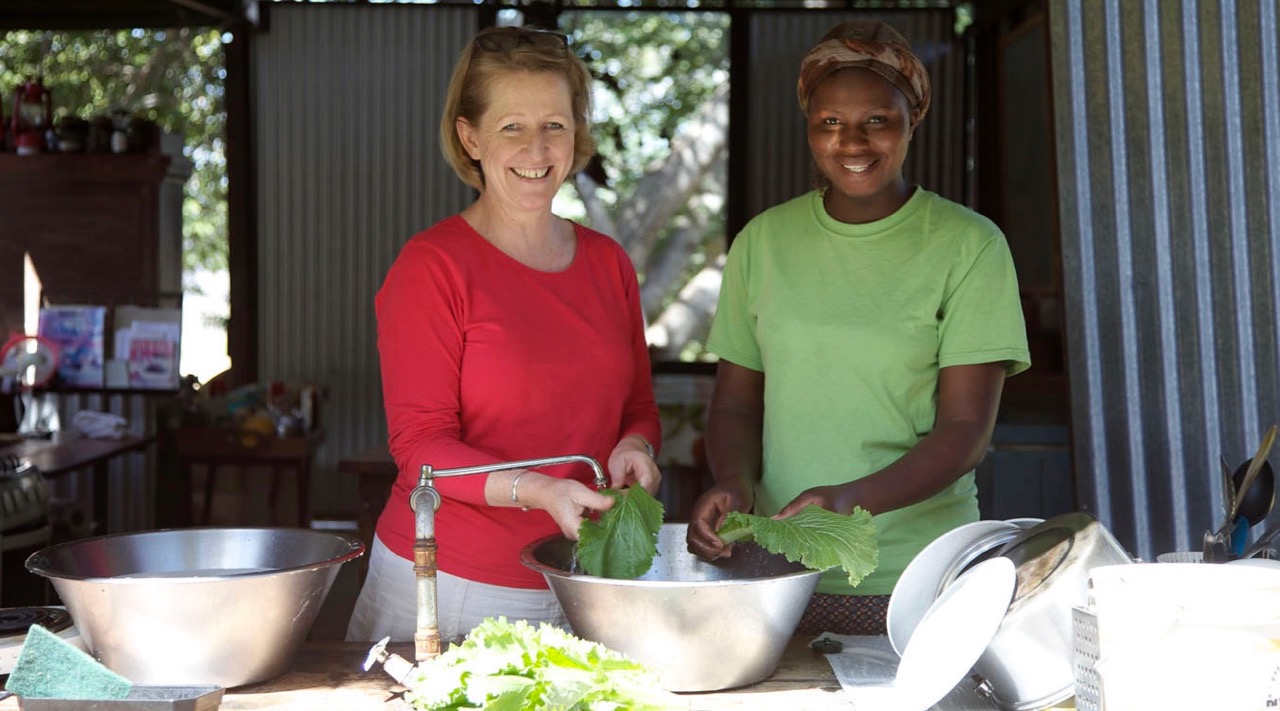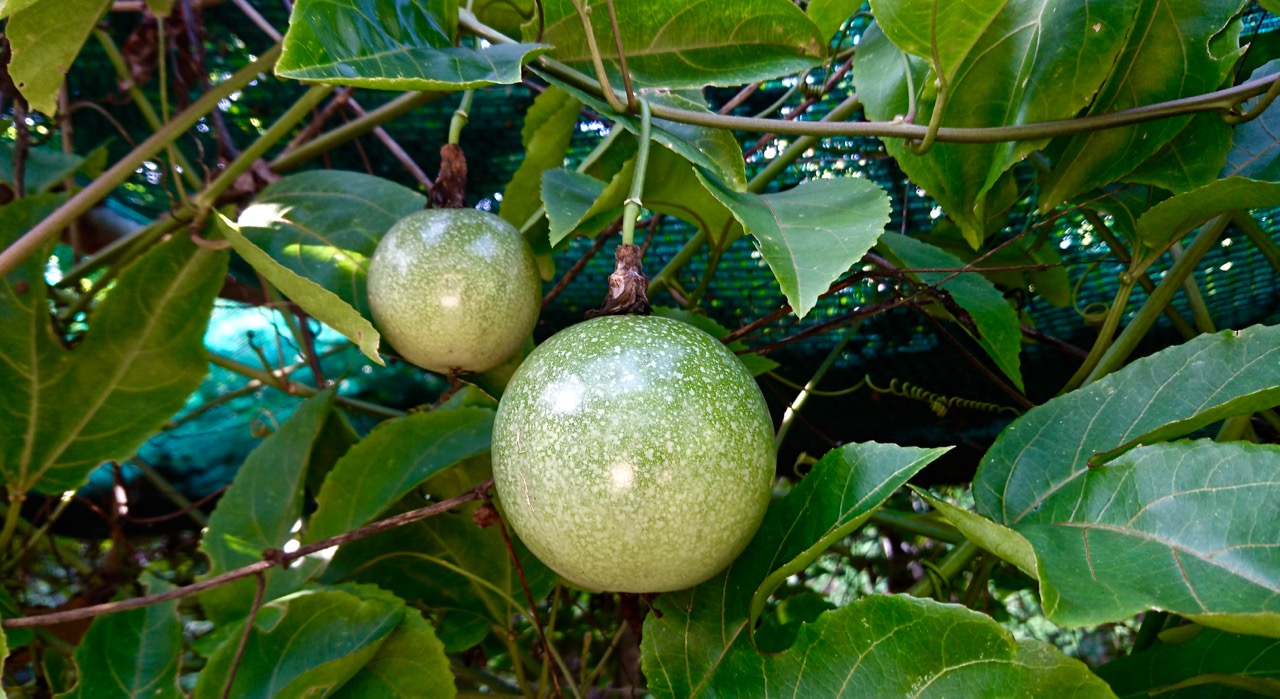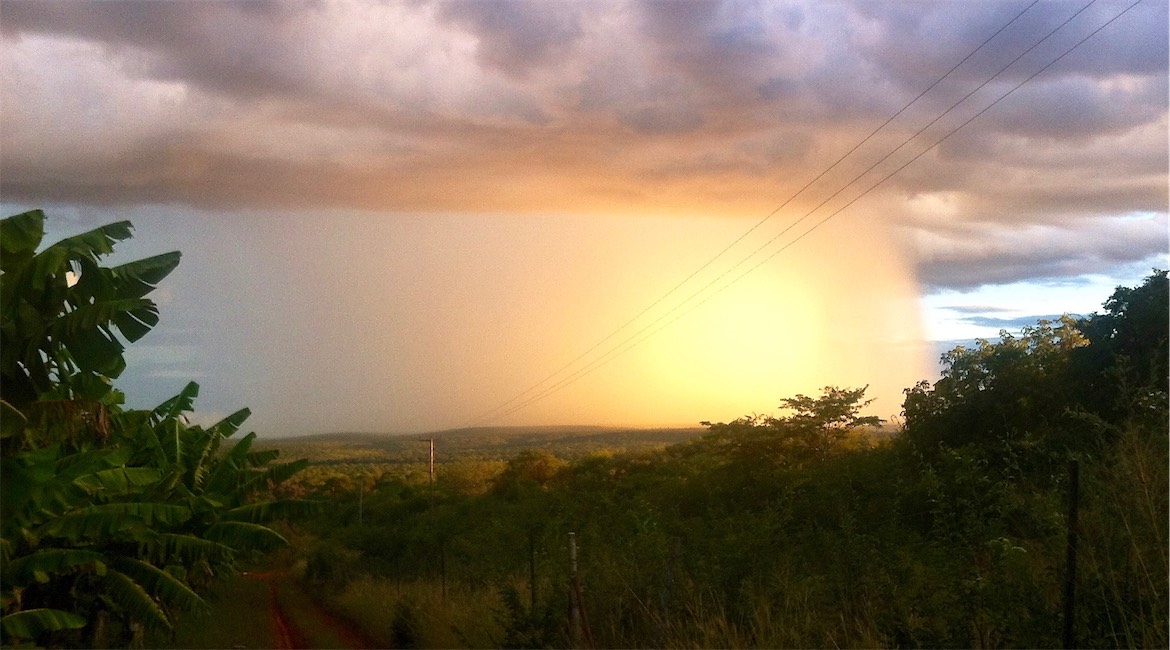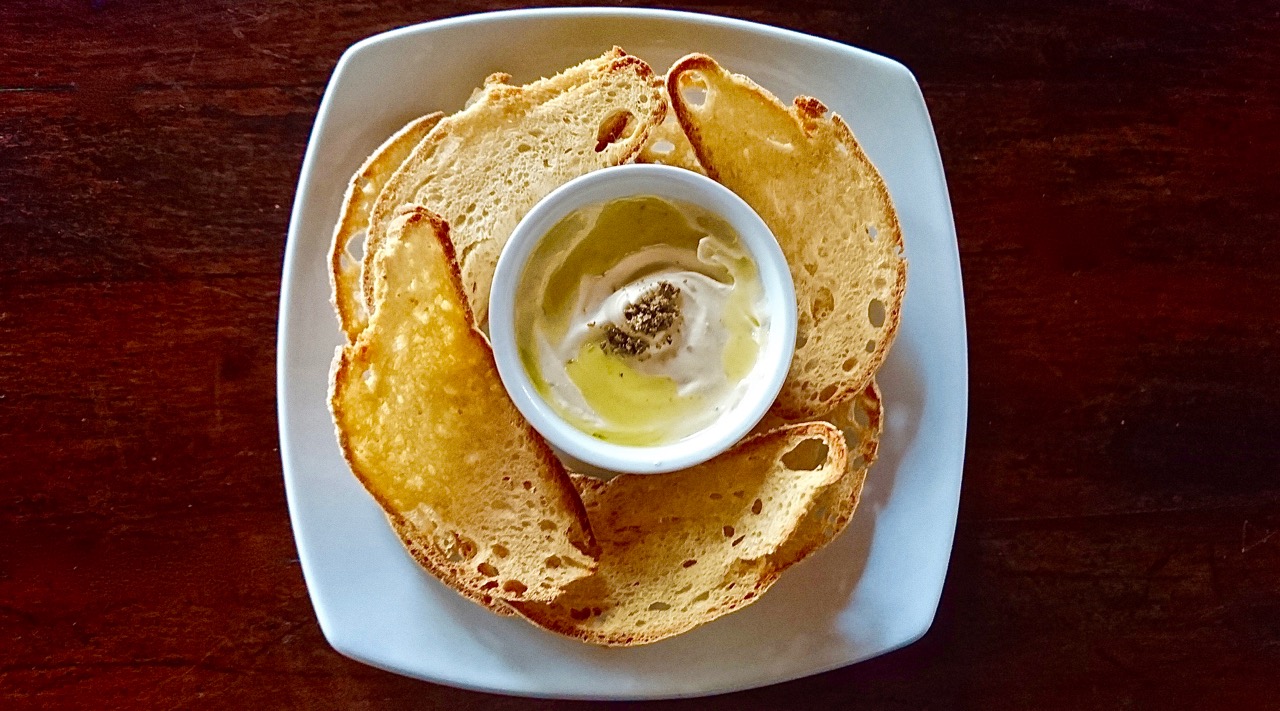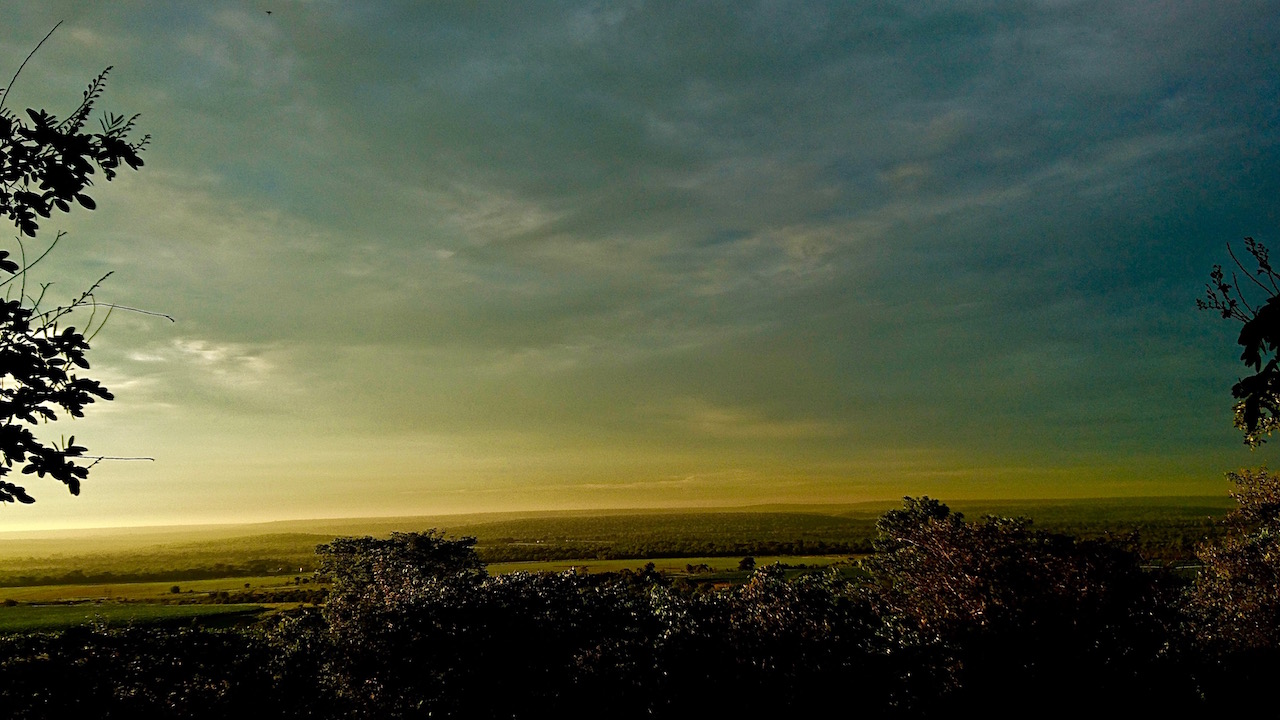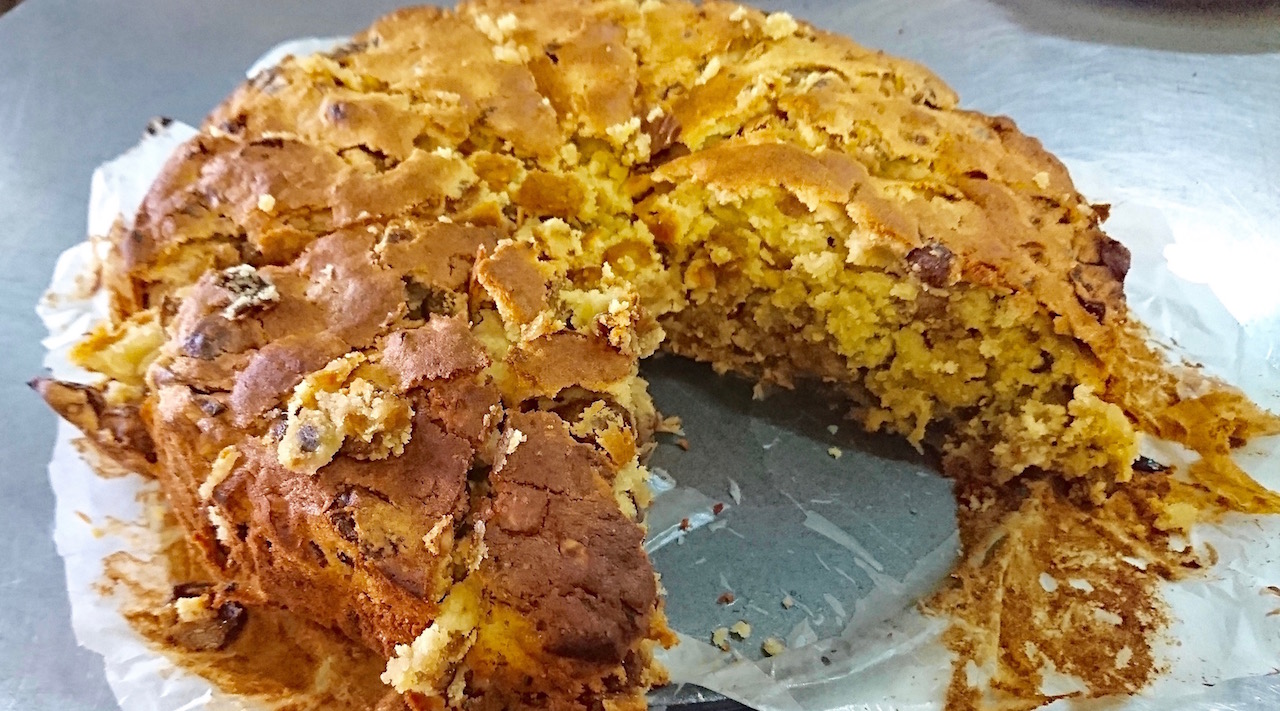As we approach International Women’s Day on March 8, I offer up a story that calls for real celebration. In the four years I’ve worked with Adelina Banda, I’ve watched this once circumspect, kindly, young Zambian woman cast off the trammels that constrained her, and transform, step-by-resolute-step, into a formidable, multi-talented chef and partner.
We’ve had the wettest summer since I arrived in Livingstone four years ago. More rain fell in January than the whole of the green season last year. We’re not used to it, and it’s presented us with challenge after challenge. Not only do we live in a house with no doors, but I also run a restaurant under a bedouin tent out in the open air.
I wrote this post a year ago today, in celebration of the happiness and healing I’ve experienced since returning to Africa to live in Zambia’s Zambezi Valley on a farm with my partner, Chris, on February 3, 2013. In the year since, much has happened to reinforce these words about poetry, about love, about nature, about learning.
Indigenous food and wild edibles, on the whole, are packed with goodness. It’s one of the many benefits of eating locally, and one that encourages me to keep on experimenting in the kitchen.
A new year is a time of promise and hope. Here, I share with you the wisdom of Wendell Berry, the heroic American writer and environmentalist, who encourages us to be still “and listen to the voices that belong to the streambanks and the trees and the open fields.”
A Poem on Hope
by Wendell Berry
It is hard to have hope.
Hanni Aston, Chris’s late mother, was, by all accounts, a renowned cook. Elderly friends of mine, who also once knew Hanni well, have all told me as much. And her love of good food and her skill in the kitchen is reflected in Chris and his siblings.
Hanni Aston with her four children, Simon, Chris, Dee and Louise.

